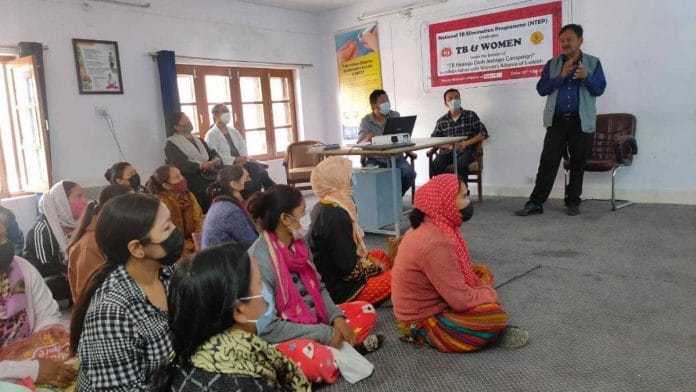On 23 August, we received phone calls from colleagues in Mumbai informing us that patients with Drug-Resistant Tuberculosis, or DR-TB, were inching closer to death because they hadn’t received their medication for nearly a month. This, unfortunately, is not a new development as TB drug shortages began last year with the stockout of Rifampicin – a medication used to treat drug-sensitive TB. Linezolid, Clofazimine, and Cycloserine are also facing the same shortages now.
DR-TB is an extremely debilitating form of the disease that requires daily doses of strong medication – missed doses can undo months of progress. Furthermore, it is crucial to recognise that about 70 per cent of the country’s TB patients depend on government support for their diagnosis, drugs, and treatment; of the 24.2 lakh persons diagnosed with TB in 2022, close to 17 lakh were diagnosed at a public health facility. (India TB Report, 2023; page 184, table 1.2).
In 2018, India articulated its noble ambition to eliminate TB by 2025, five years before the global target. But news reports suggest we aren’t getting any closer to creating a TB-free India within the next two years. In 2021, the World Health Organization pegged India to have close to a quarter of the global DR-TB burden.
This goes on to show that it is time for our ambitions to meet appropriate resources and actions.
Challenges ahead
Our treatment choices make things quite challenging for India’s DR-TB patients. Despite the WHO’s advice against it, 22,096 multi-drug/rifampicin-resistant TB patients in 2021 were taking treatment that required injectable drugs. Furthermore, in 2022, only 30,789 MDR/RR-TB patients (53 per cent of the total diagnosed) were prescribed the shorter bedaquiline-containing regimen, the WHO-recommended drug for DR-TB patients (India TB Report, 2023; page 44).
Not just in TB and DR-TB treatment, but India is also falling behind in the drug procurement and disbursal of preventive treatment for TB. On March 24, at the One World Summit on World TB Day, Prime Minister Narendra Modi announced India’s ambitions of rolling out the short-course drug regimen of 3HP (Isoniazid-Rifapentine), which is meant to protect household contacts of TB patients and needs to be consumed once a week for 12 weeks.
Unfortunately, the government has yet to distribute the drugs among states. We have heard from colleagues and fellow activists that there is a lack of clarity between the central government and states regarding the procurement of drugs, which caused the stockout we are currently facing. Whatever the reason, the biggest sufferers are the poor patients who depend on their local government health facilities for free drugs.
Also read:
TB elimination needs meaningful effort
In March, more than 600 signatories, including TB survivors, those living with TB, and treating doctors, petitioned the PM to allow access to the new WHO-recommended BPaL regimen to treat DR-TB. The medication, composed of bedaquiline, pretomanid and linezolid, is a potential breakthrough with over 85 per cent success rate in treatment. In addition to its effectiveness, BPaL reduces the pill burden from 16-24 daily to three to four, creating ground for better adherence and patient experience. To date, we have not received a response.
This was followed up by another reminder letter in July, where we requested the PM to take action as it was his vision to end TB by 2025, and we feel it is our responsibility to support it. Several emails and letters to the Health Minister, who also happens to be the Chair of the Stop TB Partnership, received no response. It is crucial for the country to sort out its drug supply and distribution of existing and backlogged orders while also forecasting and testing newer regimes to deal with DR-TB especially.
It is time for us to meet the promise made by PM Modi in 2018 to make India a TB-free country and back that promise with meaningful action to prevent any more Indians from suffering or succumbing to TB.
Blessina Kumar is a health activist and co-founder of the Global Coalition of TB Advocates (GCTA). She tweets @blessi_k and @G_C_T_A. Views are personal.
(Edited by Zoya Bhatti)






